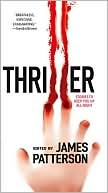 A confession: I’m not a big short story reader. I’ve gone through phases where I was on a Chandler or Munro kick, but by and large I tend to read novels. Recently I’ve been judging a short story contest, however, and it’s been an interesting experience. What I’ve discovered is that when it comes to crime fiction, the short story format is apparently a trickier beast to wrestle down.
A confession: I’m not a big short story reader. I’ve gone through phases where I was on a Chandler or Munro kick, but by and large I tend to read novels. Recently I’ve been judging a short story contest, however, and it’s been an interesting experience. What I’ve discovered is that when it comes to crime fiction, the short story format is apparently a trickier beast to wrestle down.
The stories that fail appear to fall into a few categories (food-related; humor me):
- The Grande Burrito: The author crammed it all in, and what could have been expanded into a full manuscript has been abridged. These stories tend to open with some lovely lyrical passages before morphing into a rapid-fire ending that usually involves an information dump on the final page. In these cases, I get the sense that the writer bit off more than they could chew. Rather than focusing on a smaller, self-contained story, their scope was too broad and it ended up being a hot mess.
- The Chinese Food Syndrome. The opposite problem: these stories left me wanting more. Not enough happened, or the scope was too small. The best short stories are self-contained, hewn down to the bare essentials, and when you turn the last page you find yourself fully satisfied. You’ve been told just what you need to know, and everything was resolved in a way that was satisfying. The perfect dessert, if you will.
- The Pancake: Everything is flat. Two-dimensional characters whose motivation is never clear, a plot that doesn’t make sense, nothing seems to gel. You don’t need much to describe a character; the best writers can do it in a sentence. So for me to go through an entire story and come away with no sen
 se of the characters is inexcusable. One of my all-time favorite stories is “Cathedral” by Raymond Carver:
se of the characters is inexcusable. One of my all-time favorite stories is “Cathedral” by Raymond Carver: - This blind man, feature this, he was wearing a full beard! A beard on a blind man! Too much, I say.
That one passage not only describes the blind man, it also speaks volumes about the main character, telling you everything you need to know to make the final passage of the story transcendent.
- The Filler: Like a hamburger without the bun. These stories invariably involve characters from a recurring series. Ideally, these stores should offer another perspective on them and their actions, whetting your appetite enough to draw you into following them for a full book (or ten). But far too often
 these are an ad masquerading as a story. I love vignettes told from the point of view of a different character in the book (Rosencrantz and Guildenstern are Dead is a favorite of mine). Our own Clare did this recently, as did J.A. Konrath and Lee Child in the Thriller Anthology. For me, those stories work. Less appealing is something that’s clearly excerpted from a book.
these are an ad masquerading as a story. I love vignettes told from the point of view of a different character in the book (Rosencrantz and Guildenstern are Dead is a favorite of mine). Our own Clare did this recently, as did J.A. Konrath and Lee Child in the Thriller Anthology. For me, those stories work. Less appealing is something that’s clearly excerpted from a book.
Mind you, many of the stories I loved, and all for different reasons. Most offered a glimpse of characters at a crossroad. The story depicts a flash from their lives when the crime they encounter, whether expected or unexpected, defines them in just a few short pages. A standoff in a drugstore, or a murder in an alley. Not that it has to take place in a short time frame, but by and large I don’t need to see their entire lives, and I really don’t enjoy a Christie-style parlor room “this is what happened” scene at the end. Just give it to me straight.
So what do you think makes a strong short story? And is it a tougher format for crime fiction?

I’ve only discovered in the last year or so that I like short stories. Even more recently, I discovered that I wasn’t too bad at writing them, either.
I write sparingly, so I don’t have much difficulty writing them. I can see where some writers would have trouble, though.
A little BSP here, if you don’t mind: I’ll have a short story in the Spring issue of Mysterical-e (should be up around the end of March).
I’m much like you, Michelle. I don’t read a lot of short stories, and I assume they must be harder to pull off, as the results are rarely as satisfying as a novel. Ofteh the characters either aren’t developed enough to care much about, or I do care about them and feel disappointed I don’t get more.
A novel can be sized to fit the content. Short stories are a much trickier proposition.
I’ll take a root canal with no Novocaine over having to write a short story.
I agree, the THRILLER anthology is a great collection. My hat is off to those who can tell an entire story in 5-6k words.
This is a very timely post for me, Michelle! I’m coordinating the manuscript critiques for the California Crime Writers Conference that’s being sponsored by SiC/LA-MWA/SoCaL in June.
(http://www.socalmwa.com/ccwc.htm),
For interesting reading and links to short-story-related material, readers might want to check out the Criminal Brief blog http://criminalbrief.com/
I think the biggest problem with short stories is trying to cram too much stuff in a small place. We want to give the reader “every little detail” but with a restricted word count, it just can’t happen.
Personally, I love the challenge of telling a whole story in just a few short words.
Like you Michelle I’m not a huge short story fan. When they’re good though they can be great it’s just that often they either leaving me wanting more or cram too much in. It’s a tricky craft and I even found with my story that it morphed into a three parter (probably as I couldn’t rein it in!)
I have always liked short stories. I think it started with an addiction to Reader’s Digest as a kid. I’m the kind of guy who has five or six books being read at any given time. One in each bathroom, one in my truck, my gym bag, by my comfy chair, at each side of my bed, and at least one or two audio books.
Short stories can make it less difficult to keep stories organized since I don’t have to keep up beyond one work out or one “sitting”.
Last year while between two novel length audio podcasts I wanted to keep my listeners active so I put out a series of 10 short stories on audio at my website. Several of them I used as back story for my primary characters. It was back story that I felt really helped define the characters, but would never fit in a regular book, so the format was perfect. In twenty minutes the listeners got to learn where the Hyper-Active CIA agent Kharzai got his start, and where Mike Farris got first blood in the Marines. The others were just self standing, fun stories to write and perform.
The style also helped me learn how to trim and clean up stories since the entire thing had to make sense but still fit in a twenty-thirty minute box.
Anyway, I love short stories.
My shortest ever short story:
Nose stings from the cordite.
Tastes metallic on the tongue.
Dragon lying in wait.
Cinder block dust and street dirt cakes my face.
110 degrees out there
A cool 100 in this shade.
Armed figures slither into the street, checking the body.
Step into my crosshairs.
Inhale.
Exhale.
Squeeze slowly.
Nose tenses, anticipates cordite sting.
Puff. Slap.
Another down, the rest scurry like rats.
Long day ahead.
Semper Fi, Haji.
Ok, so technically that’s a piece of “Flash Fiction”. I wrote it for a contest a while back, short story in less than 70 words.
Just sharing.
By the way, a great short story collection I really enjoyed was Frederick Forsythe’s “Comeback”. Good thriller stuff.
Perhaps the most famous short story/flash fiction ever written was by Ernest Hemingway. The legend says that it was a result of a bar bet that he couldn’t write a complete story in six words. But he did. Six powerful words the easily paint a vivid picture and evoke a flood of emotion:
For Sale, baby shoes, never worn.
Awesome story, Basil! And Joe, I’ve always loved that Hemingway one. I’m pretty sure that’s what kicked off the “Six Word Memoir” site/book. If you haven’t checked it out yet it’s here: http://www.smithmag.net/sixwords/
I’ll tell you what’s difficult…teaching students to write a short story when their chosen genre is crime/noir. I have so many kids who haven’t read any short fiction in the first place, and they want to combine Agatha Christie with a Police Procedural, and fit it into 3000 words. Ugh, it’s mindblowing sometimes, and not in a good way.
Great post Michelle.
When I write shorts, I usually tend to start with the Grande Burrito. I don’t know how many drafts I do before it’s a well rounded meal, so to speak. Sometimes it a semi healthy meal, you know, like a salad, but drowned in blue-cheese dressing.
Wow, all these food analogies made me realize that I didn’t have any lunch. Off to the kitchen!!!
Writing a full novel is child’s play. You have all the room in the world for character development, plot development, and scene setting.
It takes real talent to write a good short story, which is probably why so many writers would rather not bother. But it’s also a great training technique. Many novels would be much better if a lot of the ‘fat’ were cut and writing short stories teaches you how to do that.
I actually took a writing class in college from Raymond Carver, and couldn’t do what he did, and thought I was through as a writer before ever beginning. It was about ten years later I realized it was a plot driven thriller writer I wanted to be, and not all plotting is the same. (But talk about learning what a “telling detail” is!)
Anyway, I think Jeffrey Deaver does a terrific job in his two Twisted collections.
I do love Hemingway and Saroyan short stories. It’s the hardest form there is, IMO.
Wow, James, that’s amazing. I love Carver’s work.
And you’re completely right, Al Kalar- I was forced to be brutal with my last book, trimming 10,000 words to meet a 100,000 word restriction, and in the end it was better for it.